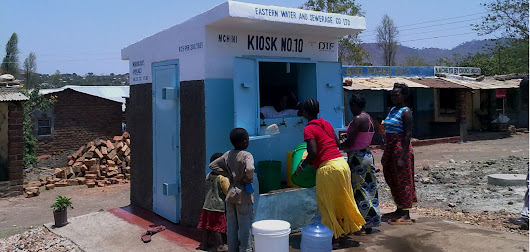Colonial Legacies in WASH and Politics
Hi and welcome back! In this post I'll be talking a bit about how colonialism still lingers through politics and the WASH Sector. I'll also be talking a bit about responsiblity (or a lack of it) and how this impacts the solutions to water and sanitation.
Cape Town
In 2013, Cape Town saw 'poolitical' protests in response to the inadequate provision of sanitation services (such as open air toilets) by the government. This included raw sewage and faeces being thrown at political opponents. However, this represented a much larger issue of inadequate sanitation and the ever increasing inequalities being 'expressed materially in basic infrastructures'.
WASH history and how this impacts decisions for solutions now
It is all thought to stem from the colonial imagination where binaries exist, separating clean and sanitary Europeans from their disgusting colonial 'others' . This created 'geographies of contamination' linked to dirty, undrained and malodourous spaces. This was seen through American disgust at indigenous defecation practice in the Philippines encouraging 'modernizing' strategies to 'disinfect social and racial boundaries'.
The view that Africans need to be educated on sanitation instead of understanding the social contexts for open defecation or poor sanitation practices could also arguably stem from this 'colonial imagination'. For example, UNICEF highlighted 'changing social behaviour' as a way to stop open defecation. This would paint people in informal settlements as uneducated and incapable. However, as my last blog post has mentioned, behaviours can be an adaptation to the given situations rather than a result of lack of education. For example, women may defecate in the open because they do not see pay-per-use toilets as worth the cost. Alternatively, not using a shared pit latrine and instead opting for a 'flying toilet' may be because they feel unsafe. UNICEF's strong advocacy for WASH also hinders the wider discourse for more suitable, effective alternatives.
Fox also notes that in colonial Africa, investments in urban infrastructure, housing, and economic diversification were limited and towns and cities were designed to cater to and conserve Europeans and their lifestyles. The increasing size of slum settlements in Africa is also argued to be evidence of a government's failure to invest in urban development. He argues that the colonizers set Africa's urban transition in motion but left a legacy of underinvestment and ad hoc urban governance structures.
Who is responsible?
Bare with me for this. There's a lot of finger pointing. Conflict when it comes to responsibility for improving sanitation in communities hinders and delays the actual improvements that communities can benefit from.
Household owners blame Landlords and Government
The majority of women in Mathare perceived sanitation to be the responsibility of landlords and local governments. The reason for this is that tenants are unwilling to pay directly for sanitation improvements because they feel landlords would be the ultimate beneficiaries. Landlords can use improved sanitation to charge higher rents and evict tenants unable to afford rent.
Often, Government refuses to take responsibility and blames Landlords
Kenya's Environmental Sanitation and Hygiene Policy corroborates residents' perceptions (agrees with) that landlords should be responsible for sanitation improvements in the informal settlements. The policy admitted Kenya's government lacked public financing to properly coordinate sanitation financing and provision particularly in areas with the poorest residents like informal settlements. This is quite similar to the political reasons for poor water quality mentioned in the third blog.
More importantly, it could hint at Fox's argument that African governments may have internalized anti-urbanization bias which encourages a laissez-faire approach to urban governance and indicates the presence of a colonial legacy.
Neocolonialism through forcing strategies?
There is general agreement from Jewitt, Kwiringira and Thieme that top-down approaches are extremely limited because they prioritize 'hardware' and 'neglect wider political ecologies' and socioeconomic and cultural dimensions. Kwiringira said that 'mere provision of infrastructure without adequate emphasis on proper use, cleaning and maintenance triggers and involuntary descent off the sanitation ladder'. Thieme also noted that initiatives in the hands of big institutional players during the construction phase reach 'relative paralysis when it comes to working with communities on management and maintenance of facilities'. I could argue the similarity between forcing top-down approaches that don't work and the supposed need for 'modernizing strategies' in the Philippines could further extend this colonial legacy and hinder development.



Comments
Post a Comment